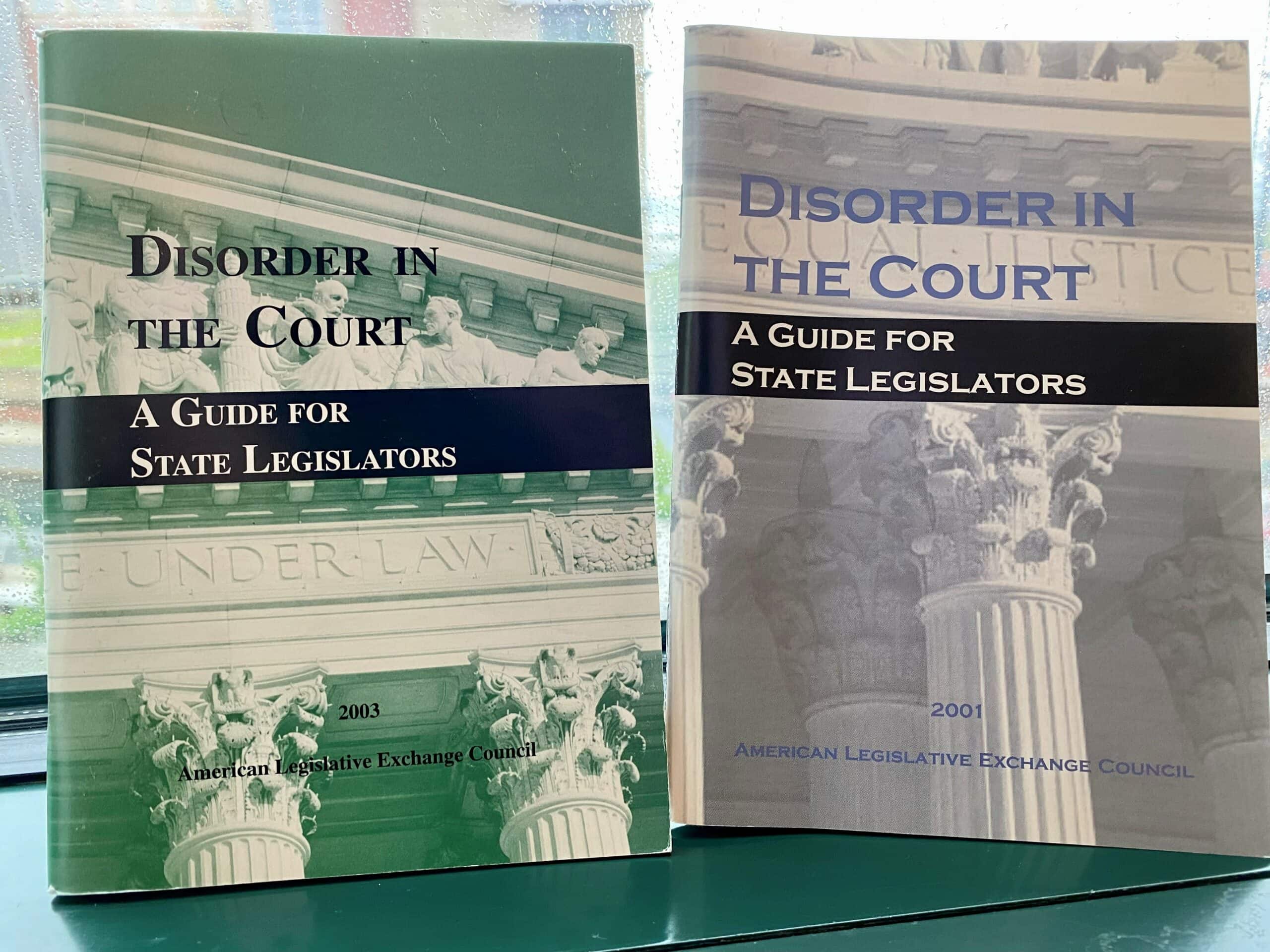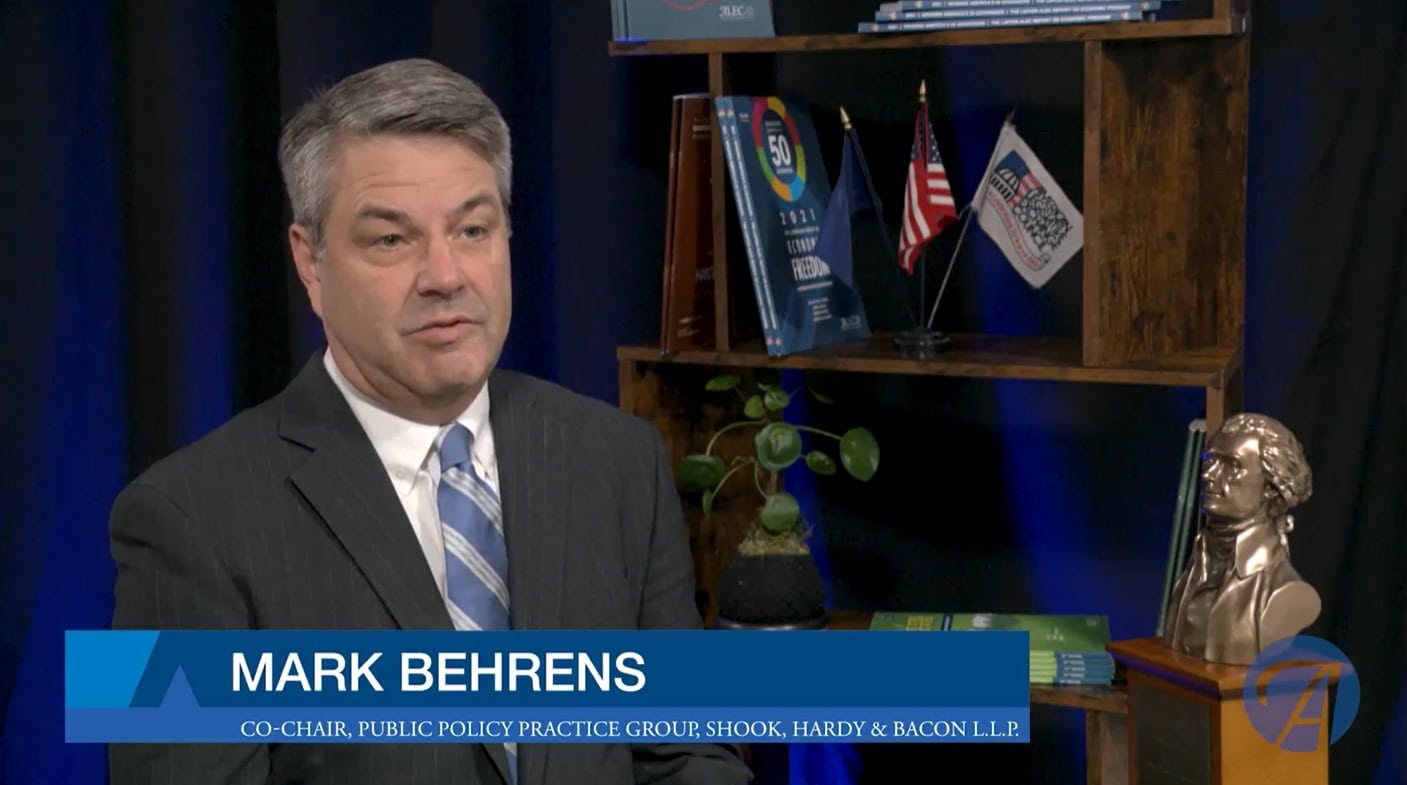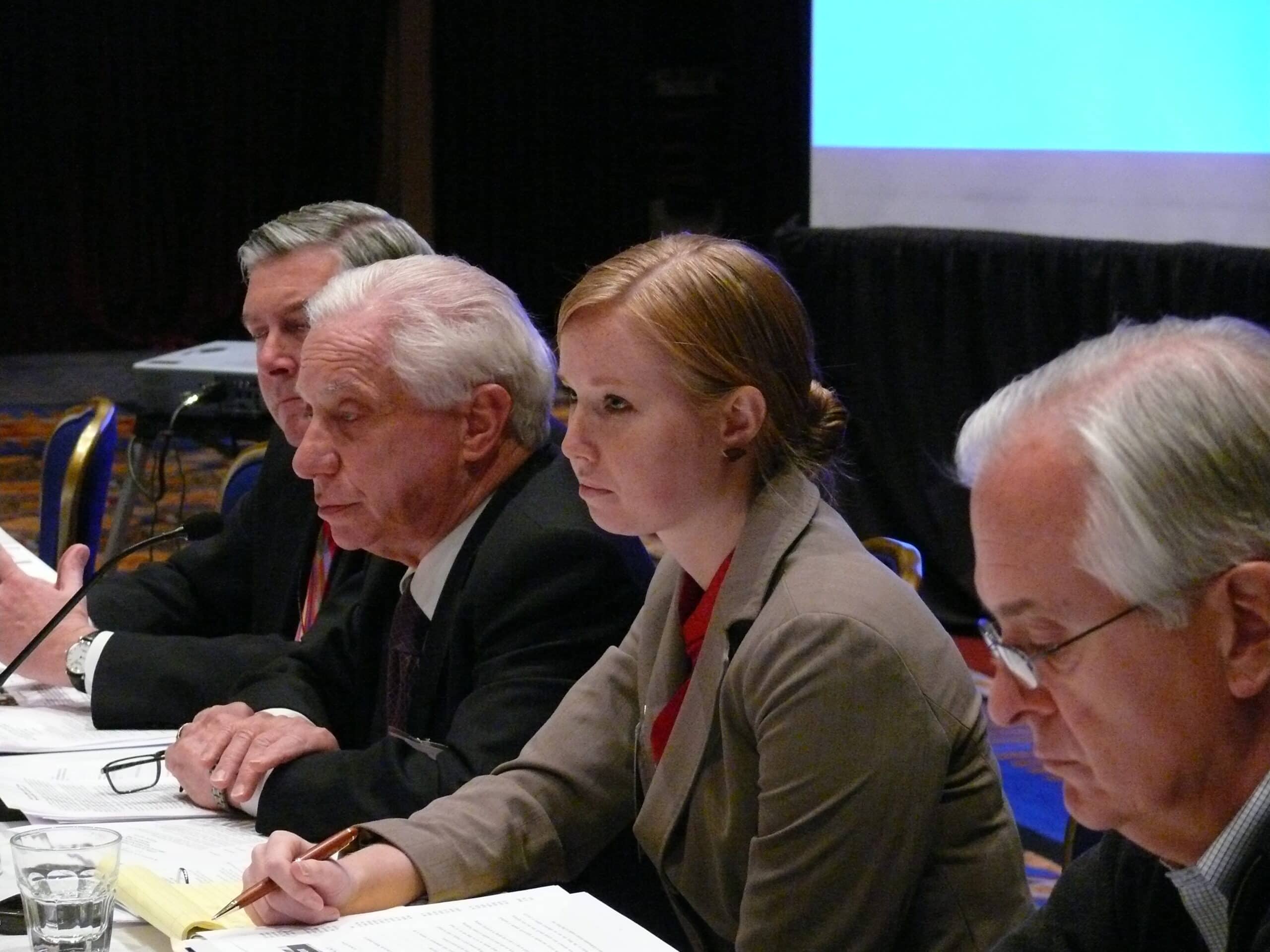ALEC’s Success on Civil Justice Reform
ALEC model legislation that has been achieved in most states has headed off the litigation avalanche.
The third episode in ALEC 50th anniversary video series, “Disorder in the Court,” features former Civil Justice Task Force Chairs Mark Behrens and Victor Schwartz, along with Nino Marchese, discussing the impact ALEC’s Civil Justice Task Force has had on legal reform in the states throughout the years.
For decades, ALEC’s Civil Justice Task Force has connected state lawmakers and legal experts to help one another restore fairness and predictability in the domain of civil justice. The Task Force has developed dozens of model policies to protect the legal system from frivolous litigation which cripples businesses’ ability to innovate, employ and engender economic prosperity. ALEC’s success has helped states restore fairness and justice in their civil justice systems, driving down economic costs from an overly litigious America, making the legal system a better arbiter of the free market economy.

As Mark Behrens, advisor to the Civil Justice Task Force, explains:
There are many examples where unbalanced tort laws have had really detrimental effects. Every consumer in America pays more on virtually everything they buy because of this hidden tort tax that’s baked into the cost of those purchases.

Former Civil Justice Task Force Chair and ALEC champion Victor Schwartz says ALEC came to the rescue.
ALEC came to the rescue and formed the Civil Justice Task Force, which I co-chaired always with an elected member. So they had somebody from the private sector and the public sector, and we formed model bills to put some adjustment into the tort system.

From our Disorder in the Court project to Tort Reform Bootcamp guide and many more additional resources, the Civil Justice Task Force earned a reputation throughout the years as a source of trusted policy solutions.
Medical malpractice suits have been another prominent area of focus for ALEC over the years. A 2006 study by researchers at the Harvard School of Public Health and Brigham and Women’s Hospital estimated that 37% of medical malpractice claims lacked sufficient evidence of wrongdoing and were likely meritless.

These lawsuits are also very expensive to defend. That same Harvard study found it cost about $52,000 to litigate a typical case – leading to a significant increase in the phenomenon of defensive medicine. Back in 2006, one large accounting firm estimated that the practice of defensive medicine increased health-care expenditures by 10% or $210 billion. In 2008, overall medical liability system costs like defensive medicine, were estimated to be $55.6 billion annually, equal to 2.4 percent of total health care spending.
In recent decades, ALEC has helped the states adopt reforms reforming civil procedure to prevent such frivolous suits – saving consumers billions of dollars, not just on the medical malpractice front, but in civil litigation at large.
I’ve been involved in civil justice issues with ALEC for over 25 years. The active engagement of ALEC members in both the private and the public sector have really helped level the playing field and create a balanced legal environment. ALEC model legislation that has been achieved in most states has headed off that litigation avalanche, and really helped protect our small business community so they could thrive. — Mark Behrens

Florida is the most recent champion of civil justice reform, enacting a comprehensive lawsuit reform package this 2023 session addressing prominent issues in the world of civil litigation. Among the various legal reforms, Florida’s HB 837 reduced the statute of limitations from four years to two years for general negligence cases, provided limited situations for which one way attorney fees and fee multiplier provisions can be applied, and ensured that Floridians can’t be held liable for damages if the person suing is more at fault than a defendant, as determined by a jury, disincentivizing frivolous lawsuits and prolonged litigation in substantive ways.
ALEC model policies like the Phantom Damages Elimination Act, Punitive Damages Standards Act, Product Liability Act, and Reliability in Expert Testimony Standards Act have all proved to be successful guidelines in the larger efforts to lessen the likelihood of outrageously high verdict awards, lower consumer costs for thousands of goods and services and to protect the free market while ensuring fairness within our justice systems.
